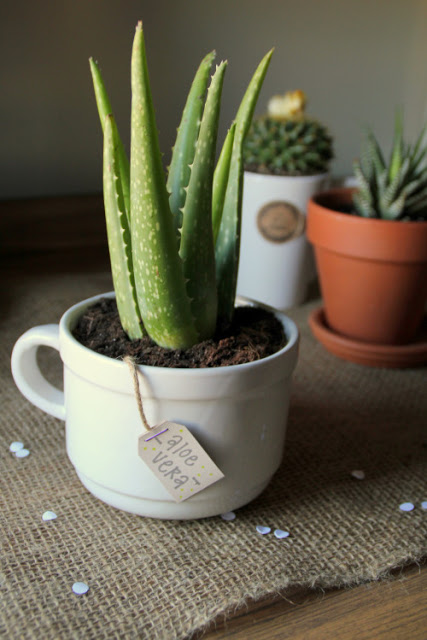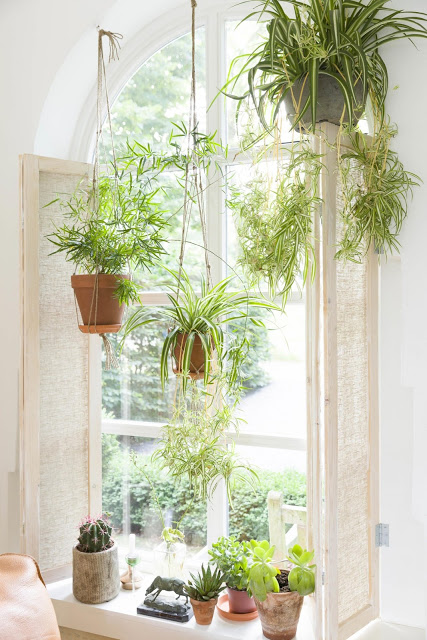Hello darlings!
Many homeowners struggle to keep their indoor air quality fresh and pure. Luckily there is a myriad of air purifying products available in the market ranging from aerosol cans to activated carbon filters. While most of these solutions are efficient, they are not devoid of challenges. For instance, some are chemical based and unsuitable for someone suffering from asthma or allergies, while others require electrical energy for them to work.
Such challenges made people desire better air purifiers, and their solution came from nature herself. NASA identified several plants that are very effective at purifying indoor air as I've previously told you about here. The following are some of them, which you too can use in your home. They’re also a wonderful way of making your property more inviting.
Aloe Vera
Aloe Vera is a relatively easy plant to grow. The flower boasts of numerous health benefits, no surprise the Egyptians referred to it as “the plant of immortality.” For starters, it is highly effective in removing formaldehyde and benzene from your home. Moreover, this sun-loving succulent contains a gel-like clear liquid rich in enzymes, vitamins, and amino acids, all of which gives it its wound- healing, anti-inflammatory and antibacterial properties.
Golden Pothos
If you are in search of a hardy plant that can help you tackle formaldehyde and carbon monoxide from your home, then the fast-growing Golden Pothos will suffice. In fact, NASA ranks it among the most efficient air purifiers. It grows impressively fast into a striking indoor decorative piece, which looks magnificent in a hanging basket. A common concern with this plant, however, is that it is poisonous and should be far from children and pets.
Snake Plant
Another great air purifier you can use is the Snake plant or the Mother-in-Law’s tongue. It is among the best filters of formaldehyde, benzene, trichloroethylene and xylene. These impurities are common in everyday household products like cleaners, toilet paper, and personal care products. The good thing about the Snake plant is that at night, it breathes in carbon monoxide, and exhales oxygen, which is highly unusual of most plants. You can, therefore, place in in your bedroom and enjoy a lovely sleep. The plant is also tough to kill since it thrives in low light and dry conditions.
Spider Plant
If you want an efficient and safe air purifier that does not require constant attention, you should try out the spider plant. It is an easy houseplant to grow, and thrives in dry soil, under cool to average room temperatures. Spider plants, also known as airplane plants, can filter harmful elements like formaldehyde, xylene, benzene, and carbon monoxide. Most importantly, the tiny white flowered plant is safe to have in the home even if you have children and pets.
The Garden Mum
Another indoor air purifying champion is the Garden Mum. It eliminates practically every indoor air impurities including ammonia, formaldehyde, benzene, and xylene, all of which are common elements in detergents, plastics, glue, and paint. The Mum is a favorite among homeowners because it is inexpensive and comes in a variety of colors. All you have to do is place it near a window where there is direct sunlight, and its bright, colorful leaves will liven up the room.
Dracaena
The Dracaena is an excellent pick if you are searching for a reliable air filter for your home. It exists in up to forty different varieties from which you can choose. Interesting options include the Warneck dracaena and the Red-edged dracaena whose leaves can add a pop of color to your home. The plant is a common sight in homes and offices and can help you to remove benzene, trichloroethylene, xylene and formaldehyde. However, be careful if you have kids or pets as the plant is poisonous.
English Ivy
Even though the English Ivy is an aggressive invader, which threatens any nearby vegetation, it is a superb air purifier. In fact, besides reliably filtering formaldehyde from the air, the plant can also reduce the amount of airborne fecal matter particles. The traditional herb grows best in moist soil and requires at least four hours of sun exposure per day.
Bamboo Palm
The Bamboo or Reed Palm has remarkable air purifying properties that enable it to filter out benzene, trichloroethylene, and formaldehyde. What makes them this efficient is that they can grow up to pretty large sizes, ranging between five to twelve feet high. The palm thrives in humid environments, where there is bright indirect light. A possible location to put the plant in your home is close to furniture pieces that emit formaldehyde.
Lot's of love


